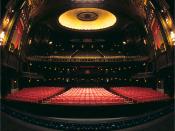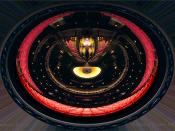Although reports of opera's death have been greatly exaggerated, interest was indeed focused on other genres for much of the twentieth century. These "other genres," however, did not exclude theatrical representational works for the stage. A good deal of compositional energy that might otherwise have been devoted to opera was redirected to the quest for new forms of theatrical-theatrical representational performance. Several composers who created relatively few operas, or none at all, composed numerous theatrical works of various sorts--staged works that fit neither the operatic nor balletic molds. Alternatively, the career of a composer otherwise committed to opera composition might contain a period of experimentation with new theatrical genres. A higher vantage point is required to appreciate the amount of compositional activity devoted to the theater in the twentieth century. The multitude of works that cannot easily be labeled "opera, " "play, " or "ballet" indicates the need for a broader and more flexible term--thus, "theatrical representations of intercultural performance.
"
As a loose genre designation, "theatrical representations of intercultural performance" is not simply a catchphrase recently concocted by historians of twentieth-century theatrical representation. Variants of the term were employed earlier in the century, and the phenomenon was noted by many. Jean Cocteau was wise to describe the "new form" of theatrical performance through negation or exclusion; attempting to detail exactly what theatrical representations of intercultural performance is or what criteria qualify a work for this designation would run counter to the broadly inclusive spirit signaled by the term. It may be wrong even to think of theatrical representations of intercultural performance as a genre, since so much twentieth-century art has been concerned with genre-blurring.
In theatrical representation, the trend began early in the century with, for example, symphonies and string quartets that incorporate the voice (Mahler and Schoenberg continuing...


